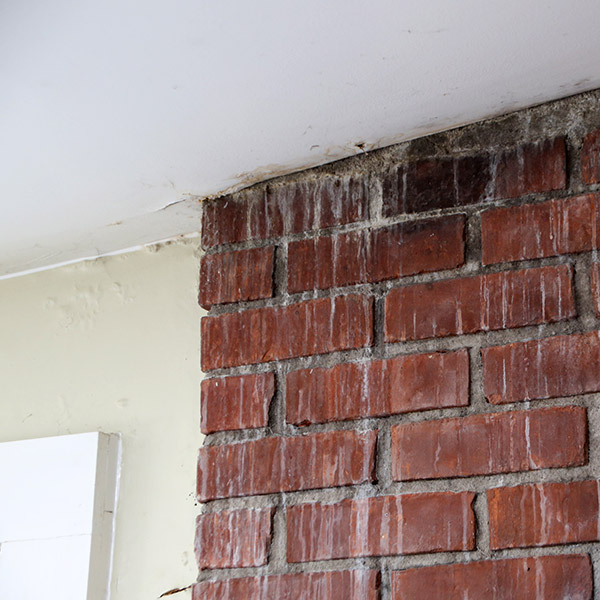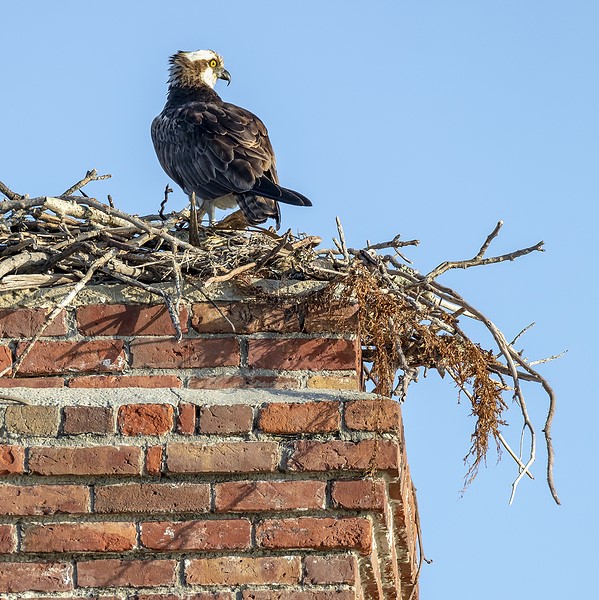How to Prevent Common Winter Chimney Problems
Chimneys, like all other household appliances and systems, function best when you keep them maintained. With chimneys, time seems to fly by and it’s one of those “out of sight, out of mind,” things, and before you know it, the chimney is malfunctioning and possibly dangerous.
Here’s how to address common winter chimney problems and how to keep them from happening.
 Chimney leaks
Chimney leaks
Bricks are porous and absorb moisture. In the winter, moisture from rain or snow can freeze and expand and begin to degrade the bricks and mortar of your chimney. Chimney leaks also can be caused by damage to the chimney cap, chimney crown and roof flashing.
Any leaky chimney issue should be fixed immediately before serious damage occurs. Once your masonry is repaired, a waterproof sealant often is the perfect way to prevent water penetration. Installing a full-width chimney cap will help to protect the concrete chimney crown and flue opening.
Smoky smell in other areas
of the house
Assuming your fireplace is the only wood-burning appliance you use in your home, if you smell faint odors of smoke in rooms distant from the fireplace, you may have a damaged chimney liner.
If your liner is cracked or decaying, combustion gases and smoke can seep out and travel throughout the house. Solve this problem by having your chimney liner repaired (or replaced) and then schedule annual chimney inspections to spot future liner problems early.
Cold air entering your home
If your house is bringing in cold air through the fireplace when it’s not in use, the likely culprit is a faulty damper. Over time, dampers can become rusted and generally worn out, keeping them from making a tight seal when closed.
Have your damper looked at by a certified chimney repair technician. This individual can either repair the device or install a new one.
Strong, musty odors coming from the fireplace
This type of odor usually means moisture is in your flue and is mixing with creosote and soot. Odors also can come from small animals that have died in your chimney. Most odor issues can be solved by having your chimney professionally cleaned on an annual basis.
Chimney sweeps use a variety of specialized scrubbers, brushes, rods and solvents to remove creosote and soot – and foul odors.
 Obstructions in your flue
Obstructions in your flue
During nicer weather, small animals like birds and squirrels may decide that your flue is the perfect nesting ground. When they leave, they leave behind their nesting material. Additionally, some critters are unable to escape from a chimney and die inside it.
All this, along with leaves, twigs and other tree debris, can cause a serious drafting obstruction. If you’re experiencing this problem, have your chimney swept clean and then either have your chimney cap inspected for gaps and breaks or install a new cap if one’s not already in place.
Chimney fire
Most chimney fires are started by built-up creosote in your flue. Some fires are brief and go out on their own – but they can still damage your chimney liner and other parts of the chimney system. Big fires can destroy the chimney and lead to a house fire.
Annual chimney cleaning by a CSIA-certified chimney sweep will reduce your risk of a chimney fire. An inspection should be performed in conjunction with cleaning.
These and other common winter chimney problems are all solvable and mostly preventable with proper cleaning, repair and maintenance.
Above & Beyond Chimney Service of Dedham, MA, is ready to help with your chimney cleaning, inspection and repair needs all year long. Talk with an expert today at (781) 383-0415.
